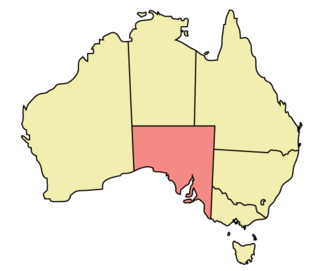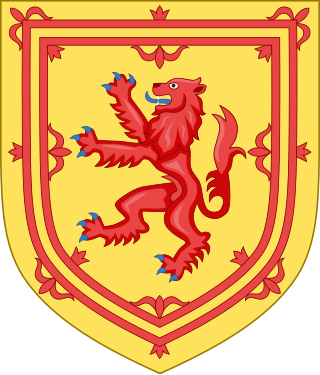Related Research Articles
Public holidays in Australia refer to the holidays recognised in law in Australia. Although they are declared on a state and territory basis, they comprise a mixture of nationally celebrated days and holidays exclusive to the individual jurisdictions.

The Australia Act 1986 is the short title of each of a pair of separate but related pieces of legislation: one an Act of the Commonwealth Parliament of Australia, the other an Act of the Parliament of the United Kingdom. In Australia they are referred to, respectively, as the Australia Act 1986 (Cth) and the Australia Act 1986 (UK). These nearly identical Acts were passed by the two parliaments, because of uncertainty as to whether the Commonwealth Parliament alone had the ultimate authority to do so. They were enacted using legislative powers conferred by enabling Acts passed by the parliaments of every Australian state. The Acts came into effect simultaneously, on 3 March 1986.

The Constitution of South Africa is the supreme law of the Republic of South Africa. It provides the legal foundation for the existence of the republic, it sets out the rights and duties of its citizens, and defines the structure of the Government. The current constitution, the country's fifth, was drawn up by the Parliament elected in 1994 in the South African general election, 1994. It was promulgated by President Nelson Mandela on 18 December 1996 and came into effect on 4 February 1997, replacing the Interim Constitution of 1993. The first constitution was enacted by the South Africa Act 1909, the longest-lasting to date. Since 1961, the constitutions have promulgated a republican form of government.
A Royal Style and Titles Act, or a Royal Titles Act, is an act of parliament passed in the relevant country that defines the formal title for the sovereign as monarch of that country. This practice began in 1876, when the Parliament of the United Kingdom passed the Royal Titles Act. By that law, and the subsequent Royal Titles Act 1901 and Royal and Parliamentary Titles Act 1927, the monarch held one title throughout the British Empire. Following the enactment of the Statute of Westminster 1931, the governments of the now separate and independent realms sharing one person as sovereign agreed in 1949 that each should adopt its own royal style and title, which was done in 1952. As colonies became new realms, they passed their own royal style and titles acts. All of the laws were created during the reign of Queen Elizabeth II.

A list of current public holidays in South Africa:
Crown copyright is a type of copyright protection. It subsists in works of the governments of some Commonwealth realms and provides special copyright rules for the Crown, i.e. government departments and (generally) state entities. Each Commonwealth realm has its own Crown copyright regulations. There are therefore no common regulations that apply to all or a number of those countries. There are some considerations being made in Canada, UK, Australia and New Zealand regarding the "reuse of Crown-copyrighted material, through new licences".

Lesbian, gay, bisexual, and transgender (LGBT) persons in the Australian state of New South Wales have most of the same rights and responsibilities as heterosexual cisgender people.

The rights of lesbian, gay, bisexual, and transgender (LGBT) people in the Australian state of South Australia are advanced and well-established. South Australia has had a chequered history with respect to the rights of LGBT people. Initially, the state was a national pioneer of LGBT rights in Australia, being the first in the country to decriminalise homosexuality and to introduce a non-discriminatory age of consent for all sexual activity. Subsequently, the state fell behind other Australian jurisdictions in areas including relationship recognition and parenting, with the most recent law reforms regarding the recognition of same-sex relationships, LGBT adoption and strengthened anti-discrimination laws passed in 2016 and went into effect in 2017.

An Act of Senedd Cymru, or informally an Act of the Senedd, is primary legislation that can be made by the Senedd under part 4 of the Government of Wales Act 2006. Prior to 6 May 2020 any legislation was formally known as an Act of the National Assembly for Wales or informally, an Act of the Assembly.
Legal interpretation in South Africa refers to the juridical understanding of South African legislation and case law, and the rules and principles used to construct its meaning for judicial purposes. Broadly speaking there are three means by which and through which South African scholars and jurists construe their country's statutory law: linguistics or semantics, common law and jurisprudence. Although statutory interpretation usually involves a personal predisposition to the text, the goal is generally to "concretise" it: to harmonise text and purpose. This is the final step in the interpretative process. Statutory interpretation is broadly teleological, comprising as it does first the evaluation and then the application of enacted law.

An Act of the Scottish Parliament is primary legislation made by the Scottish Parliament. The power to create Acts was conferred to the Parliament by section 28 of the Scotland Act 1998 following the successful 1997 referendum on devolution.
References
- Government Gazette of the Republic of South Africa , Volumes 297–414.
- "National Primary Legislation". South African Legislation Resources. LegalB. Retrieved 14 June 2011.
- "Acts". South African Government Information. Archived from the original on 22 June 2011. Retrieved 14 June 2011.